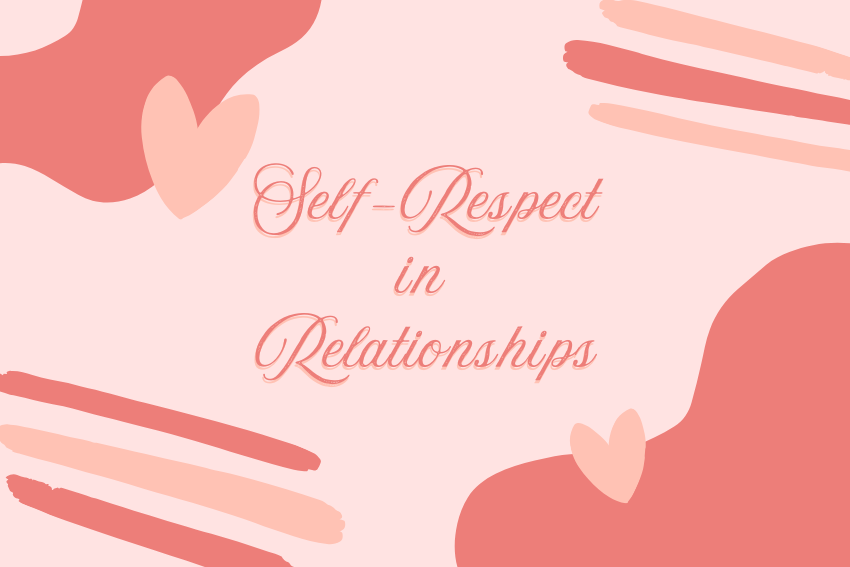Introduction
In the broader framework of human relationships, self- respect is the crucial thread through which the fabric of healthy relationships is woven. It is a core component of our identity and, therefore, it very strongly influences how we present ourselves to others, especially in romantic relationships.

Self- respect goes beyond the simple question of self-respect, it means knowing your own values, boundaries and feeling entitled to be treated with respect. With self-esteem, one is in a better position to foster relationships that are truly rich, rewarding, and balanced.
This article will help you understand what self- respect means in the context of relationships, learn to recognize the clear signs of low self-respect and develop practical strategies for maintaining and increasing self- respect in the realm of love and partnership. By becoming aware of the value of self-esteem and learning to maintain it, we can build healthy, gratifying relationships.
Understanding Self-Respect
Characteristics of Self-Respect
Self-respect is multifaceted and consists of several central qualities that explain the way we view ourselves and interact with others:
- Self-awareness: The basis of self- respect is seeing, knowing, and being one’s own person. It helps us achieve an understanding of what we require, what we desire, and our limits and share that with our partner.
- Establishing boundaries: Self-respect means knowing just how far to go in a relationship. It’s going to mean recognizing that my time, energy, and emotions are worthy and not to be trifled with. We can safeguard self-care by setting clear boundaries, thus assuring mutual respect between partners.
- Valuing one’s self and needs: Self-respect flows out of an appreciation of our worth and the realization that our needs are as important as those of our partner. That involves attending to our needs—physical, emotional, and mental—and not feeling we need to sacrifice some of our values in the interest of keeping the peace.
The Role of Self-Respect in Fostering Healthy Relationships
Self-respect is actually considered the foundation on which a healthy relationship is built. Self-respect in both partners encourages open communication, mutual support, and constructive problem-solving in a relationship. Mutual respect develops a comfort zone that allows both partners to be themselves without fear of judgment.
It also enhances self-respect by leading us to make better decisions about our relationships. It encourages us to walk away from harmful relationships in pursuit of healthy companionship with individuals who appreciate and honor our existence. Self-respect ultimately provides the basis for positive and loving relationships that contribute something worthwhile and enriching to our lives.
Recognizing Signs of Diminished Self-Respect
Identifying Behaviors That Indicate a Lack of Self-Respect
In relationships, there are several actions that may indicate a loss of self-respect. Being able to identify these signs will be important in order for one to take immediate remedy actions before things worsen further. These are those signs:
- Allowing disrespect from the partner himself/herself: When one takes disrespect, whether that be through belittling comments, dismissive behaviors, or emotional neglect, one evidences a lack of regard for self. The acceptance of treatment that makes one feel devalued and not heard creates a toxic dynamic.
- Forgoing one’s own needs and wants: Continuously putting our partner’s needs before ours may indicate a loss of self-respect. A good relationship involves give-and-take, but when we give in to the other person’s desires all the time, it breeds resentment and dissatisfaction.
- Compromising for the sake of the relationship on core values: Every time one gives up principles or beliefs to keep our partner happy, we lose some self-respect. Authentic relationships thrive on mutual acceptance and understanding; sacrificing our values can erode our sense of self.
The Impact of Low Self-Respect on Relationship Dynamics
Low self- respect for one partner can be a problem that is also transferred to the couple and become a general issue affecting both partners. A relationship where one person struggles with low self-respect is prone to the following issues:
- Power imbalances: Lack of self-respect may result in one partner being abused or controlling the other resulting in an uneven relationship.
- Breakdown in communication: This can result in misconceptions, expectations, and misunderstandings and conflicts, as people with low self-esteem are unable to express their needs.
- Increased conflict: If one feels neglected the other might develop anger and the relationship may deteriorate as the two parties will just avoid each other.
- Emotional withdrawal: Lack of self-respect makes one feel inferior and thus isolates emotionally which puts more strain on the relationship.
Recognizing these signs is the first step in reclaiming self-respect and building healthier relationships.
Strategies to Maintain Self-Respect in Relationships
Maintaining self-respect in a relationship requires effort and intention. Here are some strategies to keep in mind:
Establishing and Communicating Boundaries
- The need for clear boundaries: Setting boundaries is essential for self-respect. They define what’s acceptable, protecting your emotional and mental well-being while establishing respect in the relationship.
- Effective communication techniques: Honesty and assertiveness are important characteristics when communicating about boundaries. Avoid being accusatory but use phrases that explain how the actions impact you (e.g., say “It upsets me when my opinions are ignored”). When making your request, be as clear and polite as possible, but be serious when stating your needs, don’t make threats or be too passive.
Prioritizing Self-Care
- Physical, emotional, and mental self-care: Self-respect cannot be separated from self-care. Choose activities that help nourish the spirit, mind, and body. This includes having a balanced diet, eating healthy foods, getting regular physical exercise, and other things that involve the body. In terms of relationships, maintain friendships and interests, and cognitively, dispute irrational thoughts and practice mindfulness or research during the day.
- Balancing personal interests with relationship commitments: It’s common for people to keep up social and personal hobbies and friends while in the relationship. It helps to fully develop a sense of independence and self-respect when everyone motivates others to follow their dreams.
Cultivating Self-Awareness
- Reflecting on values and goals: Talk with patience to know what means the most to you or is dear to your heart. It assists in providing direction on what decisions are good for self-respect or an understanding of your values. You can journal or meditate and figure out what it is your mind needs to focus on.
- Journaling and mindfulness: Journaling helps deal with feelings and allows learning new things about oneself as well. Talk about emotions and difficulties and learn how to be present at the time.
Seeking Support and Validation
- Engaging with friends and family: Be in the company of responsible individuals who appreciate your person and response. Might be comforting and inspiring to share your experiences with them.
- Professional help (therapy or counseling): But when issues of self-respect are at stake then opting for therapy is a good idea is something that anyone may feel so and this is the reason why counselling may be very important.
Navigating Challenges to Self-Respect
Dealing with Criticism or Negativity from Partners
Constructive criticism can be helpful, but constant negativity erodes self-respect. Here is how to handle it:
- Assess the feedback: In other words, is the criticism positive or negative When it is positive, how constructive is it If it’s nasty, learn to realize that it’s not about you, it is about that person.
- Express your feelings: It is essential to learn if negativity impacts your self-respect to explain that calmly and ask for more positive language.
Coping Strategies for External Pressures and Societal Expectations
Societal expectations can create pressure to conform to certain relationship ideals. Here’s how to cope:
- Focus on your values: Remember what truly matters to you, rather than succumbing to societal pressures. Evaluate your relationship based on your standards.
- Limit negative influences: Stay away from social networks or any topics that lead you to a feeling of inferiority. Make sure that the people in your life positively influence your thoughts on self-respect.
Recognizing When a Relationship is Harmful to Self-Respect
It’s important to recognize when a relationship is damaging your self-respect. Signs include:
- Chronic disrespect: If the partner continues to dismiss your emotions and your expectations then it is high time that you reconsider your bond.
- Manipulation or control: Feeling controlled or manipulated can severely affect self-respect. Healthy relationships should be based on mutual respect and trust.
- Emotional or physical abuse: There is no excuse to abuse anyone in whichever style it may be. If you’re a victim of domestic violence, don’t wait to get assistance; seek help immediately.
Conclusion
Self-respect is very important in any kind of relationship. If you respect yourself, you will set up barriers that can never be crossed. This tells your partner how you want to be treated and how you should be treated, which sets the direction of your relationship.
This means that although it is absolutely fine to prioritize your partner’s needs, it should be done in moderation and should not completely overshadow your own self-esteem. This means you should be able to treat the other person with equal care, understanding, and personal satisfaction. Whenever you experience a lack of respect, make sure to talk about it because small frustrations, if left unspoken, become more serious.
Eventually, people will learn how they should behave when dealing with you. Again, when you maintain your self-esteem, you help your partner value you and treat you better. You want to be present when you disagree, but this should never harm your identity as a partner. Build self-esteem so that you can firmly tell anyone that you deserve the best, that you have a right. By doing this we can assess relationships and take into account the health and well-being of both parties, as well as each other’s needs and happiness.





